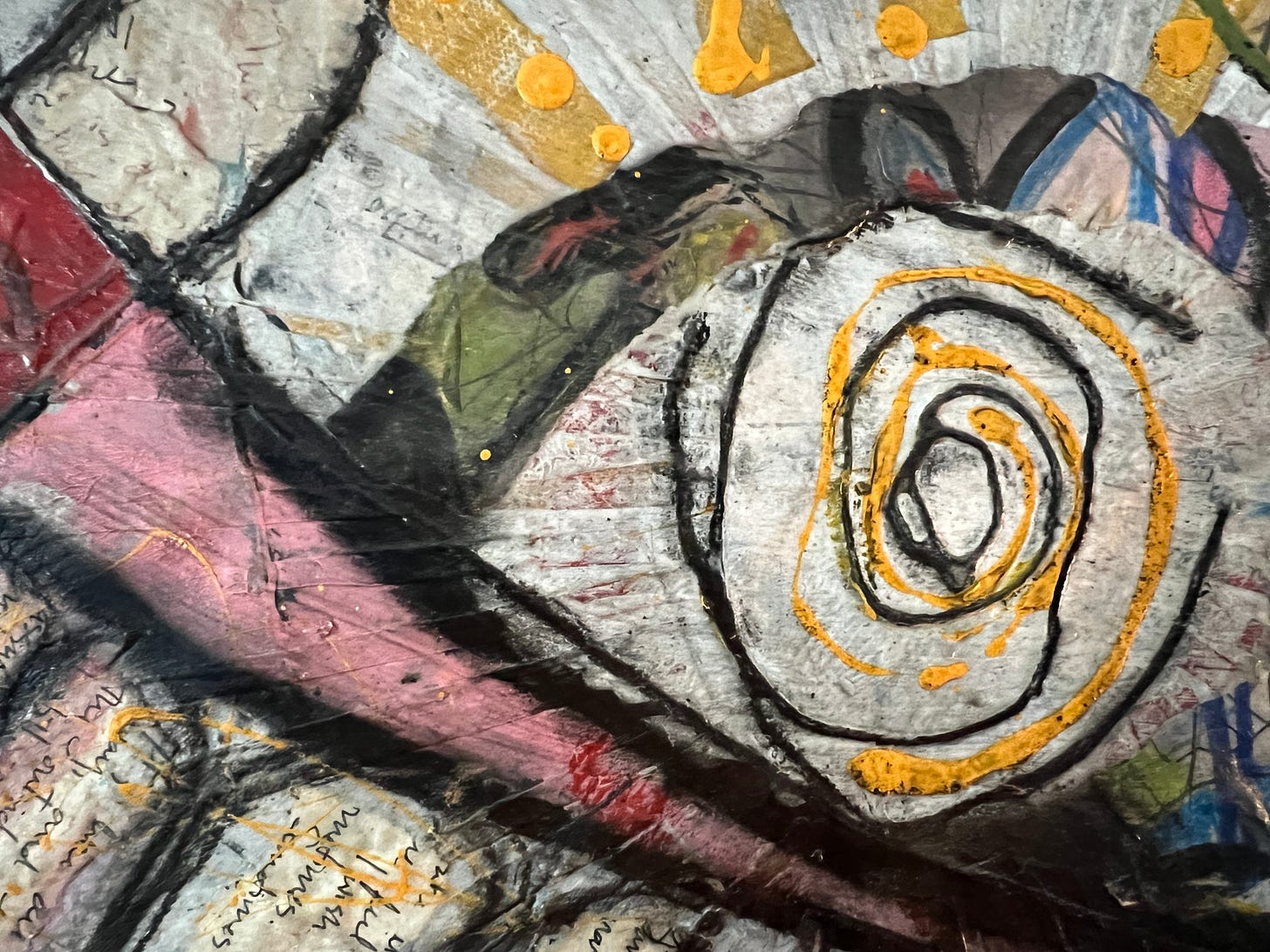Freak
When words abandoned me, the spirals emerged.
There was a period of time in the midst of the trauma of my divorce when I seemed to lose the ability to read and write—not literally, but almost like a written form of situational mutism. I had been a voracious reader since childhood, and as a newly-minted MFA in creative writing, I was in the thick of the second draft of a sprawling social novel. But suddenly my facility for written language was gone. I couldn’t string sentences together, much less scenes and chapters. Reorganizing and revising over 100,000 messy words certainly became completely out of the realm of possibility. For several years—years—I literally didn’t read a single book. The thousands of books I had hauled with me over the course of three brutal moves in less than three years seemed to mock me. The unfinished manuscripts of so much fiction, begun a decade before during a creative blossoming in my early 40’s, now filled me with shame.
It wasn’t just that I seemed to be abandoning yet another project, walking away from yet another expensive degree—though that shame floated around me, always, like the cloud of mess and stink that follows PigPen everywhere in the Charlie Brown universe. That shame was the ever-present smog of my life, in which I was, in the words of my former pastor (and one-time friend) a “flag flapping in the wind.”
No, this was a far greater loss than that.
My ex-wife had once told me incredulously about taking her students to a poetry reading where a now-acclaimed poet described writing for decades in obscurity and poverty before finally being published in late middle age.
I nodded my head in recognition and said, “I totally get that. I would rather die than not write.”
“Wow,” said my wife, for whom writing decent sonnets was a parlor game. “I can’t imagine that.”
Being able to write had kept me in that marriage, which otherwise was desperately lonely and often filled with despair. I had convinced myself that loneliness and despair was a fair trade for financial security and a room of my own. My psychiatrist acknowledged that it was “a real Sophie’s choice.” He was himself an artist as well as a shrink, and so I felt safe and seen when he said that. I burst into tears and listed all the reasons I couldn’t leave: I would be cast into poverty, it would traumatize my kids, I would lose my community. He listened patiently, letting me say out loud for the first time all my worst fears. He didn’t try to talk me out of any of it, but instead asked if I could try to imagine, just for a moment, that it would all be ok. I would work out the finances, the kids would be all right, my friends wouldn’t abandon me. I had never allowed myself to imagine such a future, but I trusted him, and so I tried.
“How would you feel?” he asked.
“I would feel so free,” I said. It came out like a long breath I didn’t know I was holding.
Three months later I told my wife I had to leave. I was so lonely, anxious, and depressed. I was drinking too much as the only way I could cope with our relentlessly social lives. And I hadn’t written anything significant in over a year. I figured I had nothing else to lose.
As it turned out, I had a lot more to lose



